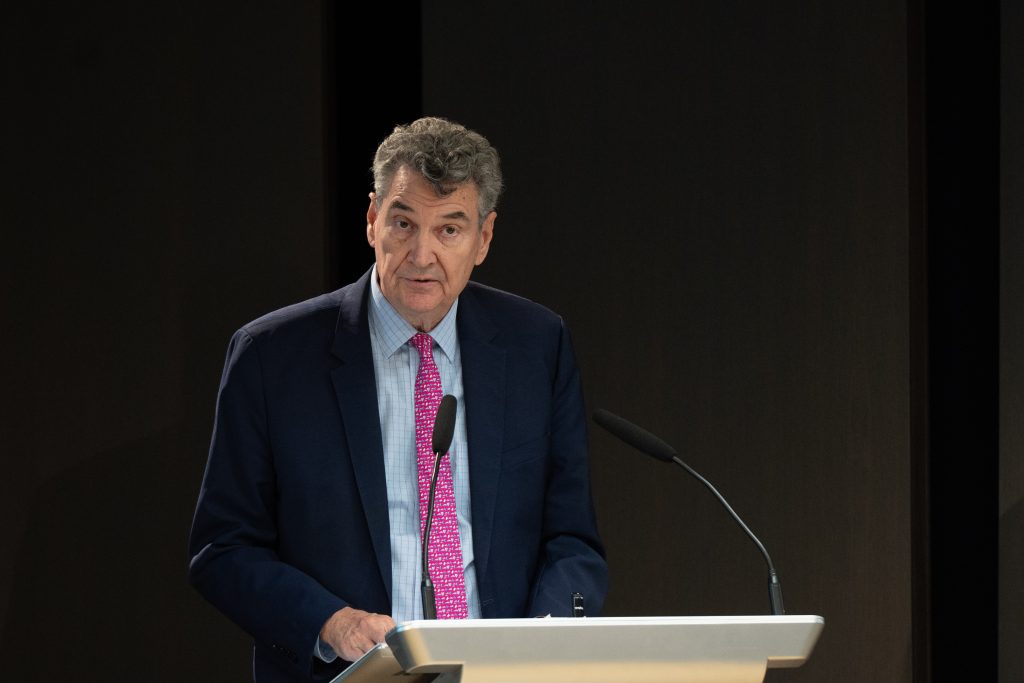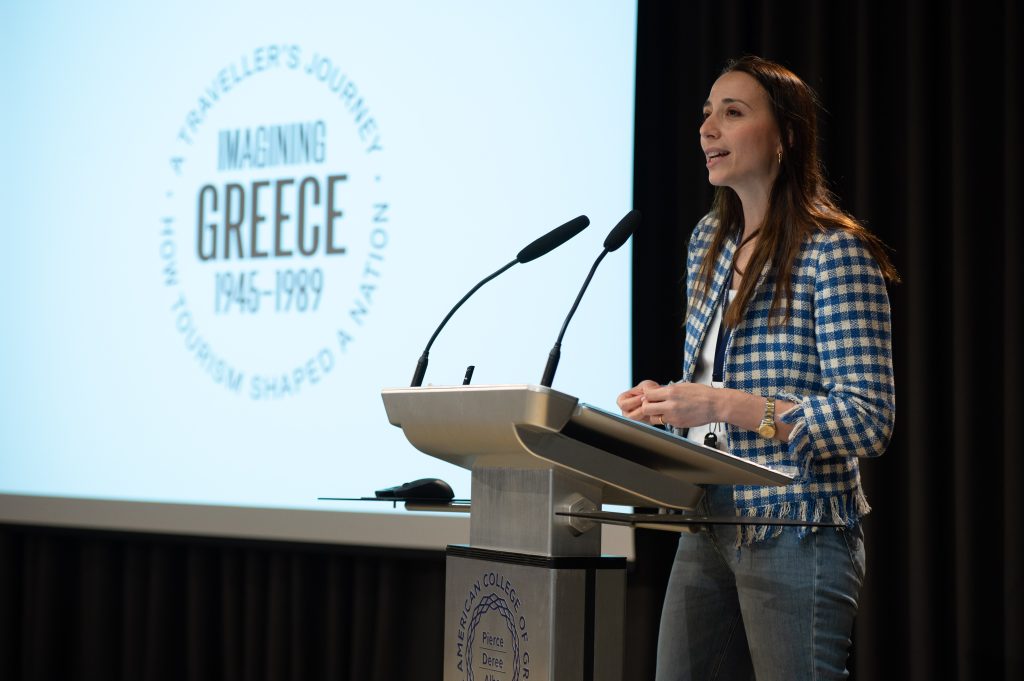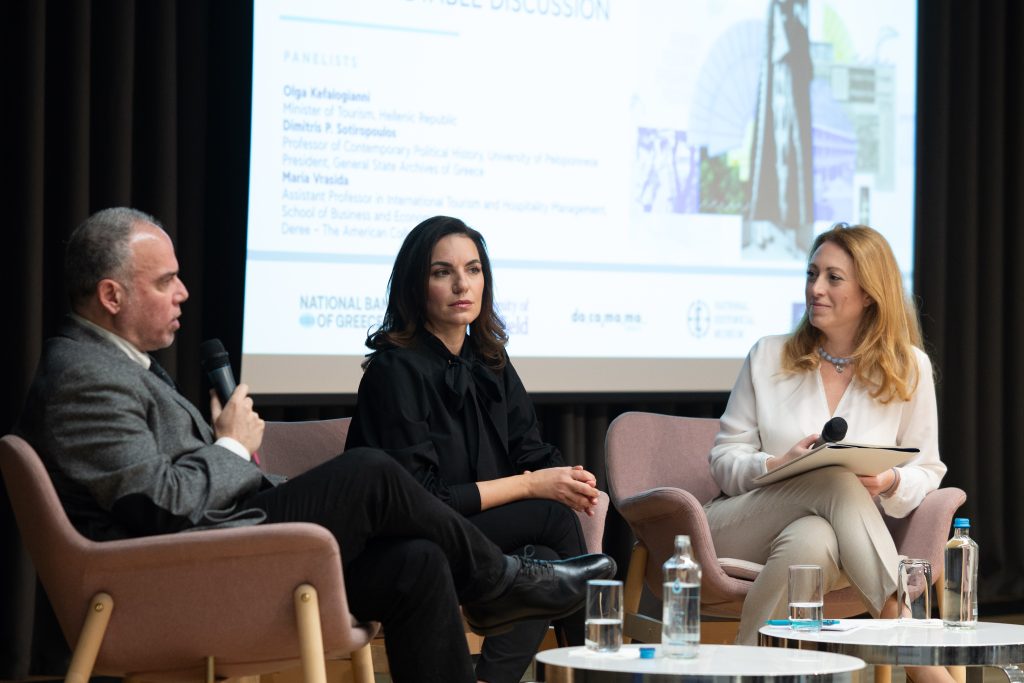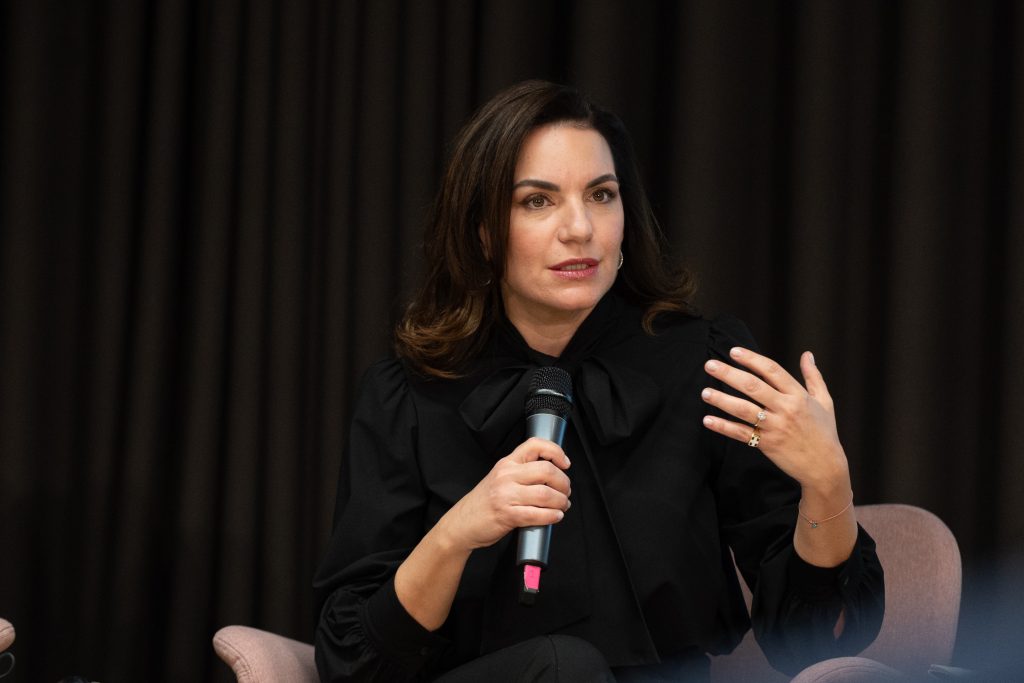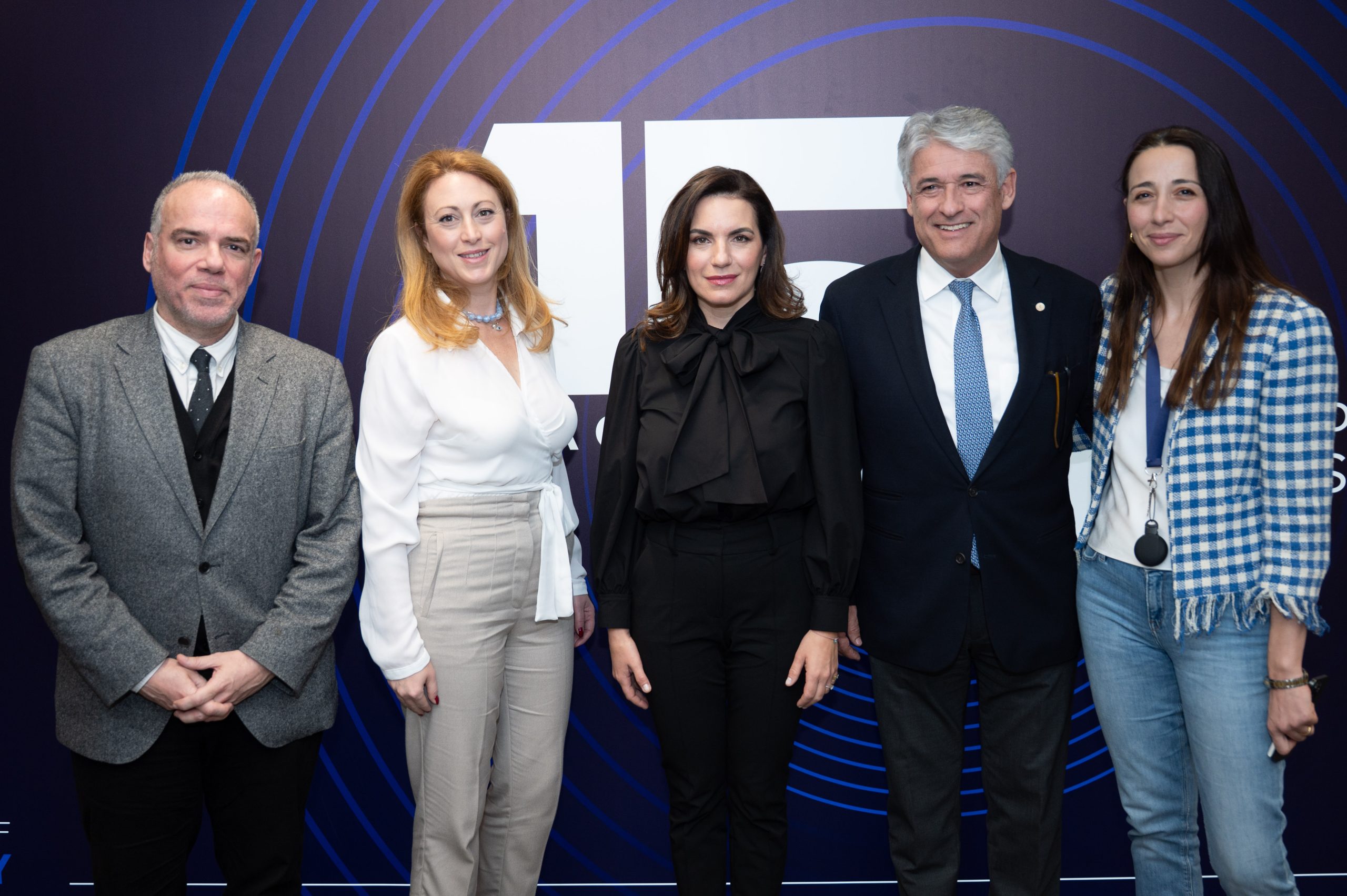
The American College of Greece (ACG) hosted the opening of the digital exhibition Imagining Greece: Tourism & Nation Branding, a unique project exploring the profound impact of tourism on the evolution of Greece’s national identity from the post-World War II era to the end of the Cold War. The event, held at the ACG Events Hall on Thursday, March 27, brought together distinguished guests and experts to discuss the pivotal role tourism has played in shaping Greece as a top global destination.
The roundtable discussion featured Olga Kefalogianni, Minister of Tourism of the Hellenic Republic, Dimitris P. Sotiropoulos, Professor of Contemporary Political History at the University of Peloponnese and President of the General State Archives of Greece, and Maria Vrasida, Assistant Professor in International Tourism and Hospitality Management at Deree – The American College of Greece.
In his opening remarks, ACG President Dr. David Horner highlighted ACG’s enduring commitment to supporting both the future of higher education and the broader cultural history of Greece. Reflecting on his tenure at ACG, Dr. Horner commented: “This June, I will conclude 17 years as President of The American College of Greece. The month before I arrived in Greece in the summer of 2008, a member of the College’s board of trustees said to me: ‘I can’t promise you, David, exactly what is in your future as President of The American College of Greece, but I can promise you an extraordinary experience.’ On July 1 of this year, when I pass the presidential baton to my successor, Ed Wingenbach, I think I will be able to safely say: ‘I can’t promise you, Ed, exactly what is in your future as President of The American College of Greece, but I can promise you an extraordinary experience.’ Because, the fact is, and, as anyone familiar with the history of this institution knows, ACG’s 150 years that we celebrate in 2025 have been nothing if not extraordinary.” Dr. Horner noted the institution’s survival through various historical upheavals, including the 1922 Smyrna Catastrophe and the Greek financial crisis, positioning ACG’s resilience as a testament to the institution’s long-standing impact.
President Horner highlighted the significance of the Imagining Greece exhibition: “I am personally eager to learn today what this research can tell us about Greece’s past. But I am confident that, whatever we may learn about that past, in the case of Greek tourism, like the case of The American College of Greece, the past will prove to be prologue to an extraordinary future,” he added.
Taking the floor, the professor who led the research project, Dr. Eirini Karamouzi, presented the exhibition as follows: “It’s a national story set in a set in a global industry which redefined and modernized a nation. It offers a unique exploration of how tourism transformed Greece into a popular holiday destination from the end of WWII to the closing chapters of the Cold War.
Professor Karamouzi described the project as an ongoing team effort and introduced the members of the interdisciplinary team that made the exhibition possible — experts with backgrounds in history, architectural history, visual culture, design studies, cultural heritage, and the digital humanities, namely: Dr. Mary Ikoniadou (Co-Investigator); Dr. Stavros Alifragkis and Dr. Emilia Athanasiou (Scientific and Artistic Curators, Lead Researchers); Dr. Christos Christidis (Special Advisor); Despina Tsilimagkou (Digital Humanities Director); and researchers Dr. Marina Emmanouil, Dr. Metaxia Papageorgiou and Dr. Aphrodite Kamara. The research was generously supported by the Onassis Foundation, the National Bank of Greece and Research England.
“We chronicle the origins of national branding in Greece; in other words, how the country embarked towards a path of reconstruction trying to promote itself. Creating the brand of Greece demanded more than a simple marketing campaign, it required a re-imagining of the nation itself”, Professor Karamouzi concluded.
Next, project members Drs. Alifragkis and Christidis took the audience on a vicarious journey through time and through the history of Greece’s tourism. Structured around four key themes—Picturing, Travelling, Discovering, and Remembering—the exhibition explores the country’s transformation into an international tourist hotspot, drawing on archival material from the Greek National Tourism Organization (EOT).
During the panel discussion, moderated by our own Maria Vrasida, Minister Kefalogianni emphasized the importance of preserving and digitizing the EOT’s archival collection, which includes rare documents, photographs, advertising campaigns, and tourist guides, all of which chronicle Greece’s development as a sought-after destination from the 1950s onward. She also highlighted the recent recognition of the EOT archive as a “special historical archive” by the General State Archives of Greece (GAK), solidifying its value as part of the country’s cultural heritage.
“The EOT archive is not just a collection of documents but a treasure trove for studying the history of Greek tourism and its socio-economic impact,” Ms. Kefalogianni said. “This digital library ensures access to invaluable historical material for researchers, students, and anyone interested in the development of Greek tourism.”
For his part, Dr. Sotiropoulos congratulated Dr. Karamouzi and her research team for the initiative and discussed the country’s initiatives in promoting tourism since the early 1920s, its efforts to position itself as an appealing global destination through rebranding and how these efforts shaped a whole new perception about the desired profile of visitors it wished to attract.
In terms of the Greek government’s multi-faceted strategy to promote the country as a tourist destination especially in the age of digital transformation, the Minister mentioned the redesign of the official tourism portal, visitgreece.gr, to make it more user-friendly and modern, as well as specialized promotional actions focusing on rural, marine, and wellness tourism. She emphasized the importance of diversifying tourism offerings combining different travel preferences with different regions, in the aim to establish Greece as a year-round destination. She also mentioned ongoing initiatives for the promotion of alternative and customizable forms of tourism such as dive tourism, yachting, health and wellness tourism, agritourism, wine tourism, and gastronomic tourism.
Concluding the discussion, the Minister pointed to the emerging trends shaping the future of tourism, stressing that travelers are increasingly seeking authentic, sustainable experiences with a smaller environmental footprint. “Greece has unique opportunities to further strengthen its position in the global tourism market, and with the right investments and strategies, we can ensure that Greek tourism continues to evolve and thrive,” she said.
The event was organized by the Institute for Hellenic Culture and the Liberal Arts (IHCLA) and the Department of Tourism, Hospitality, and Sports at Deree – The American College of Greece. With its strategic focus on the history of tourism and nation branding, Imagining Greece invites visitors to reflect on how the country’s tourism narrative has been constructed and how it continues to evolve in the modern era.
You can visit the Imagining Greece digital exhibition here.

